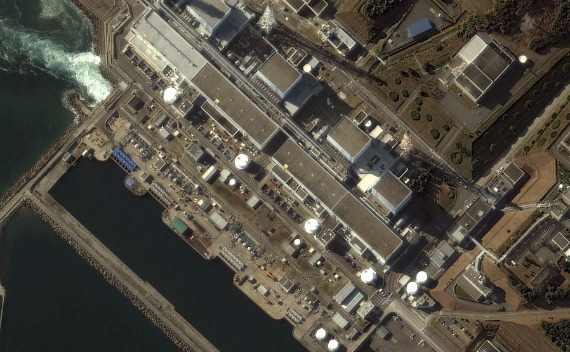Japan and China’s New Nuclear Accountability

China’s nuclear industry’s free ride may soon be coming to an end. While nuclear power represents a mere fraction of China’s overall energy use—just over one percent—China plans to add another ten nuclear power projects to the books as part of the 12th Five Year Plan. By 2020, China wants to have a nuclear power capacity of 86 GW–a dramatic increase considering China’s current capacity of 10.8 GW (To put that in perspective, in 2008, Japan’s nuclear capacity was 48 GW while the United States’ was 101 GW). China also has big plans to export its nuclear technology in the coming years.
More on:
Despite such ambitious plans for an often contentious technology, there is virtually no public debate in China on the topic of nuclear power. In a country where environmental activists protest everything from dams to incinerators to the Maglev Train, the issues of nuclear safety and contamination are completely off the radar. Greenpeace Beijing, which should be a natural repository for anti-nuclear activity in China, has no campaign or study underway on the issue. Perhaps they want to avoid the fate of the two known activists—uranium mine worker Sun Xiaodi and his daughter Sun Haiyan—who were sentenced to jail in 2009 for inciting the public with libelous slogans of “nuclear pollution” and “human rights violations.”
While censoring environmental debate and activism on nuclear power may have made life easy for the Chinese government up until now, the devastating nuclear accident in Japan has necessitated a new, serious dialogue on nuclear safety—at least among government officials. Certainly, as Evan Osnos writes, at least the official in charge of nuclear safety for China has warned in the past of too rapid an expansion in China’s nuclear industry, fearing that the quality of construction and safety will be compromised.
But Japan’s nuclear crisis has afforded China a more concentrated time of introspection and debate. As James Areddy from the Wall Street Journal notes, some officials, such as Ministry of Environment Protection Vice Minister Zhang Lijun, have taken a relatively sanguine view: “Some lessons we learn from Japan will be considered in the making of China’s nuclear power plans, but China will not change its determination and plan for developing nuclear power.” Others, such as Liu Tienan, a deputy director of the National Development and Reform Commission, express greater concern, urging authorities to “seriously analyze and summarize lessons learned from Japan’s nuclear accident to ensure the safe development of the nuclear power industry…” A few experts, however, use the moment for real teaching. Wen Hongjun, the original director of the Chinese Nuclear Energy Studies Committee, in an article, “Analyzing Nuclear Pollution: The Unseen Devil” speaks to all the Chinese who live or will live in the shadow of a nuclear power reactor, when he warns in detail of the dangers of radioactive fallout.
Even in the midst of the nuclear crisis unfolding next door, broader public debate is largely absent. While there is wide-ranging discourse on Japan’s devastating situation writ large, there is no such discourse on the implications for China and its nuclear industry. The Chinese website Baidu Zhidao has nothing on its website discussing China’s own nuclear power sites, suggesting that independent online public discussions on the topic are being censored. Yet the mere fact that officials are being forced to commit to the safety of China’s nuclear power industry in the media offers its own form of transparency and public accountability. It may not be everything, but it is something.
More on:
 Online Store
Online Store